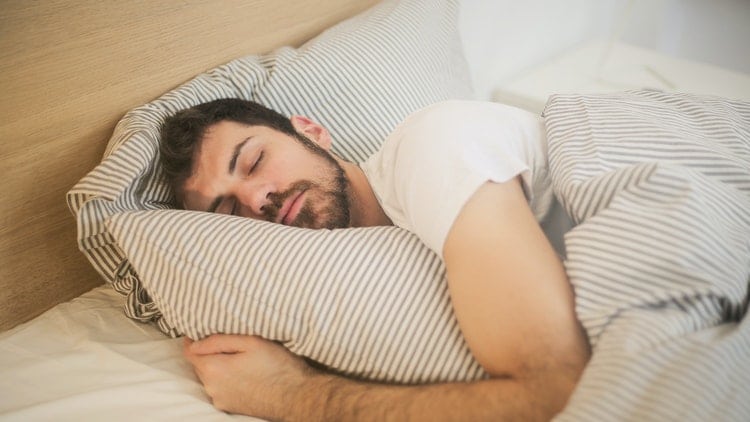10 Proven Ways to Get Better Sleep at Night

How many of you get a solid eight hours every night? If you don’t, you’re not alone. One-third of adults in the US don’t even scrape together seven hours of sleep, and those that do often report poor quality sleep. Yet, sleep is vital to our functioning. In our brains, sleep improves our memory, decision-making, productivity, and even soothes emotional stress. Downstairs in the body, sleep boosts the immune system, reduces the risk of cancer, staves off diabetes, and also prevents dementia.
Proven Ways to Get Better Sleep at Night
Sleep is a wonder drug! So, how do we improve our sleep when we finally hit the hay?
Reduce Light Exposure at Night
We evolved to associate blue light with the day. Our brains note this signal, leading to wakefulness. Every night we drown ourselves in the blue LED lights of our phones, keeping our minds alert and preventing us from getting any shut-eye. At night, dim the lights, turn the TV off, and set your phone to switch to orange light.
Avoid Caffeine Late in the Day
Throughout the day, adenosine builds up in your system, leading to a phenomenon known as sleep pressure. The more adenosine, the heavier your eyelids feel, the sleepier you get. Caffeine, artificially mutes adenosine, keeping you alert, when you should be shutting down.
Recommended for You: Can Afternoon naps increase productivity?
If you had a shot of coffee at 7:30 pm, by 1:30 am you’ve still got half the caffeine in your system. Avoid caffeine from early afternoon, to ensure you drop off readily.
Reduce Long Naps During the Day
Napping is a useful tool. If you take a nap after revising for an exam, you’ll remember more of the information later on. But as we just saw, sleepiness relies on adenosine. When you nap, the level of adenosine lowers in your body, reducing your need for sleep. Therefore, restrict naps to under an hour.
Keep a Consistent Sleep Schedule
Just as your job goes by the clock, your body does too. Your internal rhythm and functioning rely on this schedule. By going to sleep at a regular time, you keep the schedule running smoothly.
Use Melatonin
Melatonin – aka ‘the hormone of darkness’ – regulates the timing of when sleep occurs. Most doctors don’t advise taking melatonin regularly. Still, if you’re experiencing jet lag, melatonin can prevent the harmful effects of sleep loss.
Don’t Drink Alcohol Before Bedtime
Alcohol sedates you; it doesn’t help you sleep. It’s more like anaesthesia. With alcohol, you will wake throughout the night – though likely not remember. You will also be unable to dream, thus affecting your memory. So, skip the nightcap, and go straight to bed.
Create a Comfortable Sleep Environment
You want to sleep like a rock, but no one wants to sleep on a rock. Create a comfortable and airy environment to sleep, with a mattress suited to your back and body.
Change the Temperature in Your Bedroom
We evolved to sleep in the cool African savannah. As such, around 65F (18.3C) is the ideal temperature for a good night’s sleep (assuming bedding). It might sound cold to some, but it is a common cause of insomnia.
Skip Late Night Snacks
While eating too little will affect sleep, for most, we have the opposite problem. Avoid high-carb and high-sugar foods before bed, as they have been shown to impair sleep. So, no midnight munchies!
Take a Warm Bath/Shower Before Bed
Taking a warm bath or shower will lead to a momentary spike in temperature. But as you dry, you will cool down, creating the perfect bodily temperature for sleep. Plus, it’s also incredibly relaxing!
Josh Dudick
Josh is the owner and lead writer at Daily Wisely. His career has taken him from finance to blogging, and now shares his insights with readers of Daily Wisely.
Josh's work and authoritative advice have appeared in major publications like Nasdaq, Forbes, The Sun, Yahoo! Finance, CBS News, Fortune, The Street, MSN Money, and Go Banking Rates. Josh has over 15 years of experience on Wall Street, and currently shares his financial expertise in investing, wealth management, markets, taxes, real estate, and personal finance on his other website, Top Dollar Investor.
Josh graduated from Cornell University with a degree from the Dyson School of Applied Economics & Management at the SC Johnson College of Business.

